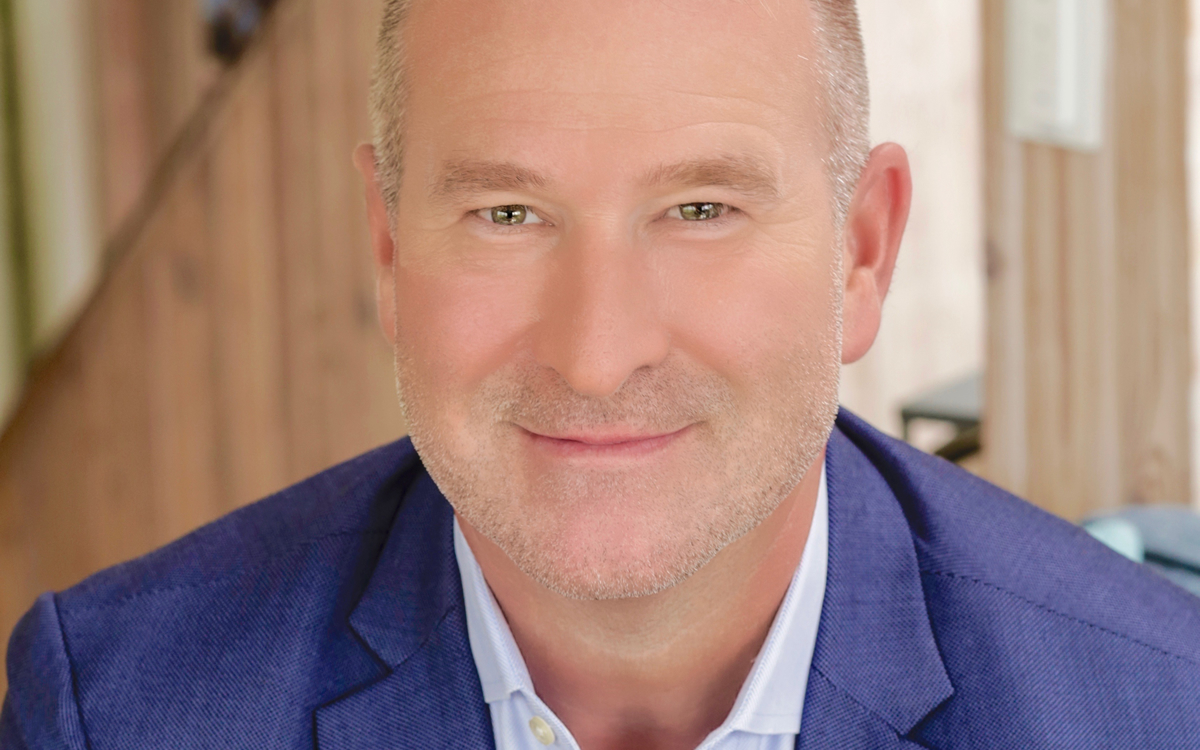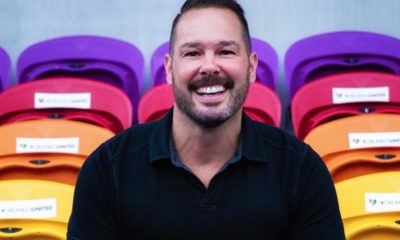Financial
Dramatic increase in LGBTQ-supportive companies on Nasdaq: report
Out Leadership survey shows 50% have inclusive board policies

A gay-owned organization called Out Leadership that advises corporations in the U.S. and abroad on how to adopt LGBTQ-supportive policies has released a report showing that the number of companies trading on the Nasdaq Stock Market that have adopted such policies for their boards of directors increased 1,556 percent from 2022 to 2023.
The actual number of companies trading on the Nasdaq that have adopted LGBTQ-supportive policies for their boards increased from 113 in 2022 to 1,871 in 2023, which the report describes as “astonishing.”
Todd Sears, founder and CEO of Out Leadership, called the report “a clear indicator that executives are responding to the opportunity to expand the diversity of their boards, and fully embracing the power of inclusion to fuel their companies’ success in today’s marketplace.”
In a statement released at the time the report was released on April 19, Sears added, “We’re proud to share today’s global report, which shows that for the first time in history, over half of all Nasdaq companies have adopted board diversity policies – and done so at a record-breaking pace.”
He concluded by saying, “We look forward to working with the other exchanges and companies around the world to continue this exciting momentum.”
An announcement by Out Leadership, which Sears launched in 2010, says the report showing the dramatic increase in LGBTQ supportive corporate board policies was its third annual report on this subject, called “LGBTQ+ Board Diversity: Progress & Possibility.” The announcement says the report was prepared by one of Out Leadership’s projects called OutQUORUM.
The report includes these findings:
• 50% of Nasdaq companies now have LGBTQ-inclusive board policies – a record-shattering 1,556% increase in one year (113 in 2022, compared to 1,871 in 2023).
• 61% of Nasdaq companies now have gender-inclusive board diversity policies, a 206% increase since 2022 (750 in 2022 compared to 2,298 in 2023).
• 59% (2,197) of Nasdaq companies now have inclusive board policies based on race, a 318% increase since 2022 (526).
• The 2023 OutQUORUM report also shares for the first time data on LGBTQ board inclusion across the global stock exchanges of the FTSE, the ASX, and the Hang Seng.
Sears told the Washington Blade that corporate boards are important because the CEO of a company reports to the company’s board.
“They are responsible for the governance of the company itself,” he said. “They cannot do day-to-day hiring decisions,” he told the Blade. “But they are responsible for setting the strategy for the company and holding the CEO and the CEO’s leadership team accountable for the success of the company.”
He said his Out Leadership company is known as a Certified B corporation. The company’s website provides details of what it does, including projects it pursues in other countries as well as in the U.S.
“A global LGBT+ business advocacy membership company advocating LGBT+ equality by creating positive economic and societal impact through the power of business,” the Out Leadership website describes its mission as including.
“Our network of nearly 98 multinational companies and 450+ CEOs entrust us to leverage their platforms for social change while working alongside policymakers to publicly advocate for LGBT+ equality in order to positively impact the economy and their bottom lines, employees, customers, partners, and community,” it says.
Sears said many of Out Leadership’s 98 member companies, including Wal-Mart, Microsoft, IBM, and Coca-Cola, are publicly traded on the New York Stock Exchange, which is the world’s largest stock exchange. He noted that Nasdaq follows closely behind the New York Stock Exchange as the second largest stock exchange.
But Sears said Out Leadership has not yet had any official interactions with the New York Stock Exchange itself.
“As it relates to board diversity requirements, in contrast to the Nasdaq new rules, the NYSE has taken an approach that ‘advocates diversity’ without either suggesting new disclosure requirements or recommending diversity goals,” Sears told the Blade in a statement.
“It is worth noting that nowhere in NYSE’s public discussions about diversity is LGBTQ mentioned or included in any definition,” he said. “They only speak about diversity in vague terms of gender and ‘diversity,’” Sears said.
Sears has been credited with being among the first to emerge from within the corporate world to advocate full-time for LGBTQ supportive policies among businesses large and small.
He describes himself as a “recovering banker” and a “bit of a serial entrepreneur” who started his career in the investment banking industry in 1996 as an analyst in New York with Schroders, the British multinational asset management company.
From there, according to his LinkedIn page, he served from 1999 to 2001 as vice president of business development for DeSilva & Phillips, an investment bank focusing on media, technology, and marketing industries, before joining Merrill Lynch, the internationally known investment management and wealth management division of Bank of America, where he became Head of Strategic Initiatives at the firm’s Office of Diversity during his close to seven years there.
Finally, before launching Out Leadership, Sears served just over two years with Credit Suisse, a global investment bank and financial services firm founded and based in Switzerland with offices in major financial centers around the world, including in New York City.
Sears makes no apologies for launching Out Leadership as a for-profit corporation with a business model of advocating for LGBTQ equality in business and beyond. He notes that, among other things, Out Leadership helped arrange for 65 business leaders to speak out against a proposed anti-LGBTQ law in North Carolina five years ago and helped line up 60 Wall Street banks to sign an amicus court brief in support of the Obergefell marriage equality case before the U.S. Supreme Court.
“My philosophy is every place in the world these companies do business, LGBT people should be protected, respected, and legal,” Sears told the Blade. “We are still illegal in 67 countries. But in all of those countries our companies do business,” he said.
“And so, the goal of our leadership is to use that kind of power that these companies have to roll back all 67 sodomy laws around the world as well as all the anti-trans laws obviously that we’re seeing here in the U.S.,” he said. “The idea is that the economic power that these companies have is in my opinion how we will also win equality.”
The Out Leadership report on the Nasdaq company LGBTQ policies can be viewed here.
Further information on Out Leadership’s work can be accessed here.
Real Estate
Celebrate the power of homeownership this Fourth of July
Owning a home is powerful act of self-determination

This Fourth of July, celebrate more than independence: celebrate the power of LGBTQ+ homeownership. Explore resources, rights, and representation with GayRealEstate.com, the trusted leader in LGBTQ+ real estate for over 30 years.
Home is more than a house: it’s a symbol of freedom
As the fireworks light up the sky this Fourth of July, LGBTQ+ individuals and families across the country are not just celebrating the nation’s independence — they’re celebrating personal milestones of freedom, visibility, and the right to call a place their own.
For many in the LGBTQ+ community, owning a home represents more than stability — it’s a powerful act of self-determination. After generations of discrimination and exclusion from housing opportunities, more LGBTQ+ people are stepping into homeownership with pride and purpose.
Why homeownership matters to the LGBTQ+ community
While progress has been made, LGBTQ+ homebuyers still face unique challenges, including:
- Housing discrimination, even in states with legal protections
- Limited access to LGBTQ+ friendly realtors and resources
- Concerns about safety and acceptance in new neighborhoods
- Lack of representation in the real estate industry
That’s why the Fourth of July is a perfect time to reflect not just on freedom as a concept, but on how that freedom is expressed in the real world — through ownership, safety, and pride in where and how we live.
Finding LGBTQ+ Friendly Neighborhoods
One of the top concerns for LGBTQ+ buyers is whether they’ll feel safe, accepted, and welcome in their new neighborhood. Thanks to evolving attitudes and stronger community support, many cities across the U.S. now offer inclusive, affirming environments.
Some of the best cities for LGBTQ+ home buyers include:
- Wilton Manors, Fla. – A vibrant LGBTQ+ hub with strong community ties
- Palm Springs, Calif. – A longtime favorite for LGBTQ+ homeowners
- Asheville, N.C. – Progressive and artsy, with growing LGBTQ+ visibility
- Portland, Ore. – Inclusive, eco-conscious, and diverse
- Philadelphia, PA – Rich in history and LGBTQ+ community leadership
When you work with an LGBTQ+ friendly realtor, you get insight into more than property values — you get a real perspective on where you’ll feel most at home.
Navigating the real estate process with confidence
Whether you’re a first-time gay homebuyer or preparing to sell your home as an LGBTQ+ couple, it’s essential to understand your rights and options. Here are a few key tips:
1. Work with a trusted LGBTQ+ real estate agent
Representation matters. A gay realtor, lesbian real estate agent, or LGBTQ+ friendly agent understands the unique concerns you may face and advocates for you every step of the way.
Use GayRealEstate.com to connect with LGBTQ+ real estate agents near you. For over 30 years, we’ve helped LGBTQ+ buyers and sellers find their ideal home and a professional who respects their identity.
2. Know your legal protections
While federal law (via the Fair Housing Act and Supreme Court rulings) prohibits housing discrimination based on sexual orientation or gender identity, enforcement can vary by state. Make sure to research:
- State-level housing discrimination laws
- Local LGBTQ+ protections and resources
- What to do if you experience discrimination during a transaction
3. Secure inclusive financing
While most lenders follow fair lending rules, it’s smart to seek out banks or credit unions with LGBTQ+ inclusive policies and a history of non-discriminatory lending practices.
4. Plan for the future as a family
For same-sex couples, especially unmarried partners, it’s vital to review how you’ll hold the title, designate beneficiaries, and plan your estate.
Ask your agent or attorney about:
- Joint tenancy with right of survivorship
- Living trusts
- Powers of attorney and healthcare proxies
Selling a home as an LGBTQ+ homeowner
If you’re listing your home, working with a gay-friendly real estate agent ensures your identity and story are honored — not hidden — in the process.
Highlight:
- Your community connections
- Your home’s role in creating a safe space
- Local LGBTQ+ resources to attract like-minded buyers
Showcasing the full value of your home includes sharing what it meant to live there authentically and safely.
Your home, your freedom
The Fourth of July reminds us that freedom isn’t just an abstract idea — it’s lived every day in the spaces where we find comfort, love, and belonging. For the LGBTQ+ community, the right to own and thrive in a home is part of the larger journey toward full equality.
At GayRealEstate.com, we believe every LGBTQ+ person deserves:
- A safe place to live
- A community that welcomes them
- An advocate in the home buying or selling process
Ready to make a move?
Whether you’re dreaming of your first home, upgrading with your partner, or selling a space that helped shape your identity, GayRealEstate.com is your trusted partner. With our nationwide network of gay realtors, lesbian real estate agents, and LGBTQ+ friendly professionals, we make your journey smooth, respectful, and informed.
Visit GayRealEstate.com to:
- Search LGBTQ+ friendly homes
- Connect with inclusive real estate agents
- Access free guides for buyers and sellers
- Protect your rights and get expert advice
This Fourth of July, celebrate more than independence — celebrate your freedom to live, love, and own with pride.

Did you melt like the Wicked Witch of the West this week?
As summer temperatures rise, keeping your home or apartment cool during a heat wave can become both a comfort issue and a financial challenge. One of the most effective ways to keep a home cool is to prevent heat from entering in the first place. Sunlight streaming through windows can significantly raise indoor temperatures. Consider the following solutions:
• Close blinds or curtains during the hottest parts of the day. Blackout curtains or thermal drapes can reduce heat gain by up to 30%.
• Install reflective window films to block UV rays and reduce solar heat without sacrificing natural light.
• Use outdoor shading solutions such as awnings (yes, the ones you removed because they were “dated”) and shutters to limit direct sunlight.
Fans are a cost-effective way to circulate air and create a wind-chill effect that makes rooms feel cooler.
• Ceiling fans should rotate counterclockwise in the summer to push cool air down.
• Box fans or oscillating fans can be placed near windows to pull in cooler evening air or push hot air out.
• Create a cross-breeze by opening windows on opposite sides of your home and positioning fans to direct airflow through the space.
• For an extra cooling effect, place a bowl of ice or a frozen water bottle in front of a fan to circulate chilled air.
To optimize natural ventilation, open windows early in the morning or late in the evening when outdoor temperatures drop. This allows cooler air to flow in and helps ventilate heat that built up during the day.
Appliances and electronics generate a surprising amount of heat. To reduce indoor temperatures:
• Avoid using the oven or stove during the day; opt for no-cook meals, microwave cooking, or grilling outside.
• Run heat-producing appliances like dishwashers and clothes dryers in the early morning or late evening.
• Unplug electronics when not in use, as even standby power can add heat to your space.
• Switching to energy-efficient LED lightbulbs can also reduce ambient heat compared to incandescent lighting.
If you do use an air conditioner, maximize its effectiveness by:
• Setting it to a reasonable temperature—around 76–78°F when you’re home and higher when you’re away.
• Cleaning or replacing filters regularly to maintain airflow and efficiency.
• Sealing gaps around doors and windows to prevent cool air from escaping. (Didn’t we all have a parent who said, “Close the door. You’re letting all the cool out?”)
• Using a programmable thermostat to optimize cooling schedules and reduce energy use.
If it is not cost-prohibitive, adding insulation in attics and walls can greatly reduce heat transfer. Solar panels that reflect heat can also help, as well as offset the cost of their installation. Adding weatherstripping around doors and windows, sealing cracks, and using door sweeps can make a significant difference in keeping heat out and cool air in.
Natural and eco-conscious methods can also help cool your home.
• Snake plants, ferns, or rubber trees can improve air quality and slightly cool the air through transpiration.
• White or reflective roof paint can reduce roof temperatures significantly.
• Cooling mats or bedding can make sleeping more comfortable without cranking up the A/C.
For renters or those who can’t make permanent modifications, there are still plenty of ways to keep cool.
• Use portable fans and A/C units instead of built-in systems, making sure they are the correct size for your space.
• Removable window film or static cling tinting can reflect heat without violating your lease.
• Install tension rod curtains or temporary blackout panels instead of hardware-mounted window coverings.
• Add draft blockers and weatherstripping tape that can be applied and removed without damage.
• Cover floors with light-colored rugs to reflect heat rather than absorb it.
• If allowed, use temporary adhesive hooks to hang reflective materials or light-filtering fabrics over windows.
Even if your space is warm, you can still take steps to help your body stay cool.
• Wear light, breathable fabrics like cotton or linen.
• Stay hydrated and avoid caffeine or alcohol during peak heat hours.
• Take cool showers or use damp cloths on your neck and wrists to bring your body temperature down.
Keeping your home or apartment cool in the summer doesn’t have to be expensive or energy-intensive. With a few adjustments such as blocking sunlight, optimizing airflow, using fans effectively, and making renter-friendly upgrades, you can create a more comfortable indoor environment while keeping energy bills in check.
Valerie M. Blake is a licensed Associate Broker in D.C., Maryland, and Virginia with RLAH @properties. Call or text her at 202-246-8602, email her at DCHomeQuest.com, or follow her on Facebook at TheRealst8ofAffairs.
Real Estate
The world’s on fire and D.C. is on sale (sort of)
Prices are up, but then again, nothing makes sense anymore

ICE is disappearing people, revered government agencies are shuttering, and who knows if we’ll be in World War III next week? But can you believe prices in D.C. are actually still up 6.3% since last year? It doesn’t make sense, and perhaps that does make sense, because nothing seems to make any sense any more.
That said, there are some parts of our market that are truly suffering. The interest rates, which have been up, up, up for about four years now, are the ongoing rain on our market’s military parade. Combine that with 75,000 federal employees taking a buyout nationwide, and DOGE cuts eliminating around 40,000 federal jobs in the District (per estimates by the D.C. CFO), not to mention thousands of other job losses in non-governmental organizations due to funding and program cuts, and you’ve got a case of uncertainty, and downright unaffordability in the pool of otherwise would-be buyers.
This has had a marked impact on properties that starter-home buyers and low- to mid-level employees would otherwise buy, most notably condominium and cooperative apartment units. These properties have already slowed in our market thanks to the profound impact that higher interest rates have had on their monthly carrying costs—pair that with job insecurity, and a lot of condos are proving to be very difficult to sell indeed.
So how is the average sale price up in our market?
The increase is almost entirely due to the resounding strength of the single-family home market, especially in upper Northwest D.C., where it is still quite common to see bidding wars, even on properties pushing past the $3M mark. It seems that buyers in that echelon are less impacted by a few percentage points in the interest rate, and less concerned about their job security. Notably, those buyers are often married with children and have an absolute need for more space, must stay in the area due to one spouse’s job, or the kid’s friend group, regardless of whether the cost of owning is thousands of dollars more per month than it would have been in 2020 or 2021. The continued appreciation in these neighborhoods defies imagination.
So, what to do if you are not one of those lucky enough to be shopping for a $3M home? The short answer: wait. If you want more space, rent your current place out and learn the joys of being a landlord while someone else pays your mortgage. Need the equity from your current home to buy your next place? Get a home equity line of credit, or loan, and pull the equity out of your current place to buy the next one. Or—and I have never recommended this before in 21 years of being a Realtor—rent for a few years. Sure, I’d love to list and sell your condo so you can climb the real estate ladder, but it might just be a waste of time, money or both if you could just ride out this storm and sell in a DOGE-less future.
All this said, there are some condos that seem to be immune from this recent negative news. Anecdotally, it feels like it’s the truly special ones that do just fine no matter the market. Our recent listing in Capitol Hill had a view from every one of its 15 windows of the Supreme Court. Sold in five days with six offers. Another condo was on the top two floors of a townhouse and had the coolest black wood floors that gleamed like a grand piano. Sold in four days at full price.
So, all is not for naught if you have a condo or home in an area that people want to be in, with nice space, light, amenities and a certain je ne sais quois. And, as long as we have a democracy in a few years, my experience says our market will be back, stronger than ever, really soon.
David Bediz is a Realtor and mortgage loan broker for the Bediz Group LLC and Home Starts Here, LLC. Reach him at [email protected].
-

 U.S. Supreme Court2 days ago
U.S. Supreme Court2 days agoSupreme Court to consider bans on trans athletes in school sports
-

 Out & About2 days ago
Out & About2 days agoCelebrate the Fourth of July the gay way!
-

 Virginia2 days ago
Virginia2 days agoVa. court allows conversion therapy despite law banning it
-

 Maryland4 days ago
Maryland4 days agoLGBTQ suicide prevention hotline option is going away. Here’s where else to go in Md.











